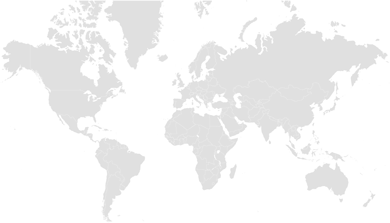Case study
2024 • Government of Thailand; SUEZ Group Bangkok – Transforming solid waste management
Bangkok, a city with over 10 million residents, faces significant challenges in managing the 3.65 million tonnes of solid waste it generates annually. With low recycling rates and heavy reliance on landfills, the city's waste management system struggles to meet demand. Efforts by the Thai government include introducing the National Solid Waste Management Master Plan, which emphasizes waste reduction, recycling, and the introduction of advanced waste-to-energy (WTE) technologies. Private sector initiatives, such as the SUEZ Plastic Recycling Plant, are critical to reducing waste and improving resource recovery.
Recovered Materials & Products
Energy
Electricity
Materials
Waste Streams
Organic solid waste
Solid waste
Confirmed countries
Sweden


Background and Context
Location: Bangkok, Thailand
Resource Stream: Municipal solid waste, with significant amounts of plastic and organic waste.
Challenges: Bangkok generates approximately 10,000 tonnes of waste daily. Despite efforts to curb waste, only 19% is recycled, and much of the remainder ends up in open-air dumps or unregulated landfills, contributing to environmental hazards. Additional issues include mismanaged plastic waste, inadequate infrastructure for waste segregation, and a lack of public awareness.
Technologies/Methods Used
Bangkok employs a range of waste management strategies to address these challenges:
- Waste-to-Energy (WTE): Advanced WTE systems are being introduced to convert non-recyclable waste into electricity, reducing landfill dependency.
- Green Taxonomy Framework: A policy initiative that guides green investments, including financing for waste management projects through mechanisms like green bonds.
- Integrated Sorting and Collection: Efforts to implement better waste segregation at the source and improve collection systems through technology.
Implementation Steps
- Policy Framework: Adoption of the National Solid Waste Management Master Plan, which integrates 3R (Reduce, Reuse, Recycle) principles and WTE technologies.
- Public-Private Collaboration: Partnerships with private companies like SUEZ to establish infrastructure for recycling and energy recovery.
- Infrastructure Development: Construction of advanced waste management facilities, including the SUEZ recycling plant and planned WTE facilities.
- Public Awareness Campaigns: Education programs to promote waste reduction and proper segregation practices among citizens.
Outcomes and Impacts
Environmental and economic impacts: The development of WTE facilities provides alternative energy sources while creating jobs in waste management and recycling sectors.
Social Outcomes: Improved infrastructure and public awareness programs have enhanced waste management efficiency and community participation.
However, challenges remain, such as scaling recycling and WTE initiatives to address the entire city's waste and improving the integration of informal waste pickers into the formal system.
Lessons Learned
Bangkok’s waste management experience underscores the importance of a multi-stakeholder approach. Public-private partnerships, such as those with SUEZ, demonstrate the potential of innovative recycling and energy recovery technologies. However, stronger enforcement of waste segregation laws and further investments in infrastructure are necessary to scale and sustain these efforts. Addressing informal sector integration and public awareness will also be critical to achieving long-term success.
Learn more
This case study is extracted from the publication linked below: "Harnessing the Role of Private Sector in Waste Management through South-South and Triangular Cooperation for Inclusive Urbanization, UNDP (2023)"
https://www.undp.org/policy-centre/istanbul/publications/harnessing-role-private-sector-waste-management-through-south-south-and-triangular-cooperation-inclusive
Technologies
Themes
Capacity building
Policy and regulation
Waste-to-energy
Public-private partnerships